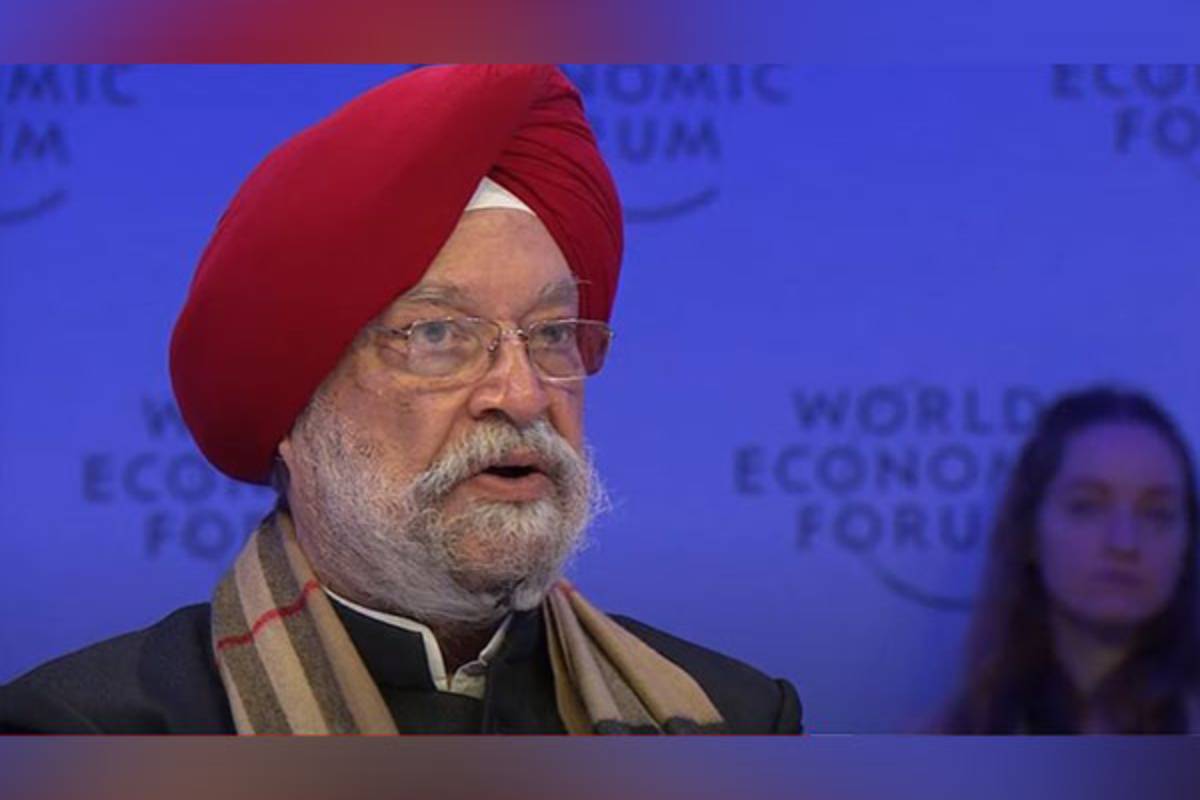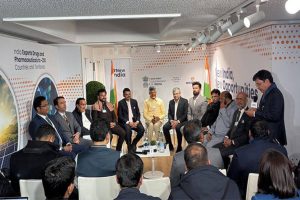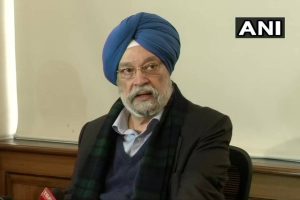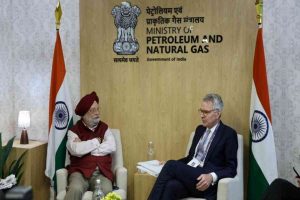On the sidelines of the World Economic Forum in Davos, Union Minister for Petroleum and Natural Gas Hardep Puri met Vicki Hollub, President and CEO of Occidental Petroleum and discussed opportunities in India’s Exploration and Production sector.
“Met my friend Ms Vicki Hollub, President & CEO, Occidental Petroleum, in #Davos again. We had an interesting discussion on opportunities to participate in Indian E&P sector and using their CCUS technology for enhanced oil recovery. I also informed her about the reduction in India’s ‘No Go’ areas for E&P by almost 99% in April 2022 & opened up approx. 0.91 million sqkm area for E&P. in addition to major steps to dramatically reduce previously ‘No-Go’ Areas making India’s entire EEZs area of 2.36 million sqkm available for exploration activities” the Union Minister posted on X.
Carbon Capture, Utilisation and Storage (CCUS) involves the capture of CO2, from large point sources like power generation or industrial facilities that use fossil fuels. Captured CO2 can be used on site or transported to be used in a range of applications, or injected into deep geological formations such as depleted oil and gas reservoirs.
CCUS can be retrofitted to existing power and industrial plants, allowing for their continued operation. It can tackle emissions in sectors like heavy industries.
Earlier the Minister also met with Adner Opedal President and CEO of Equinor and discussed opportunities in India’s E and P sector.
“Discussed potential collaboration opportunities in Indian E&P sector, offshore wind sector & India’s Gas opportunity in my meeting with Mr Anders Opedal – President & CEO, @Equinor in #Davos today. India, being the 4th largest renewable capacity holder globally, has set a target to achieve 500 GW renewable energy capacity by 2030 & looks forward to potential collaboration between Indian companies & Equinor in pursuit of our shared objective of achieving #NetZero” the Minister said in his post on X.
India has been able to navigate through a formidable energy crisis by a four-pronged energy security strategy: Diversification of energy supplies; Increasing India’s Exploration & Production footprint; Alternate energy sources and meeting energy transition through Gas-based economy, Green Hydrogen and EVs. India increased the number of its crude oil suppliers from 27 countries in 2006-07 to 39 in 2021-22, adding new suppliers while strengthening relationship with older ones.
India is also undertaking an ambitious journey of energy transition culminating in India achieving ‘Net Zero Carbon’ by 2070. India is only one of the G20 countries on course to achieve its Paris ambitions.
According to the Ministry for Petroleum and Natural Gas India’s energy base load will be met by hydrocarbons. Government of India has undertaken landmark reforms in the upstream, midstream, and downstream sectors of Hydrocarbon industry in India.
Reforms in the energy sector in general and the oil and gas sector in particular demonstrate India’s commitment to energy security, ease of doing business and energy transition.





